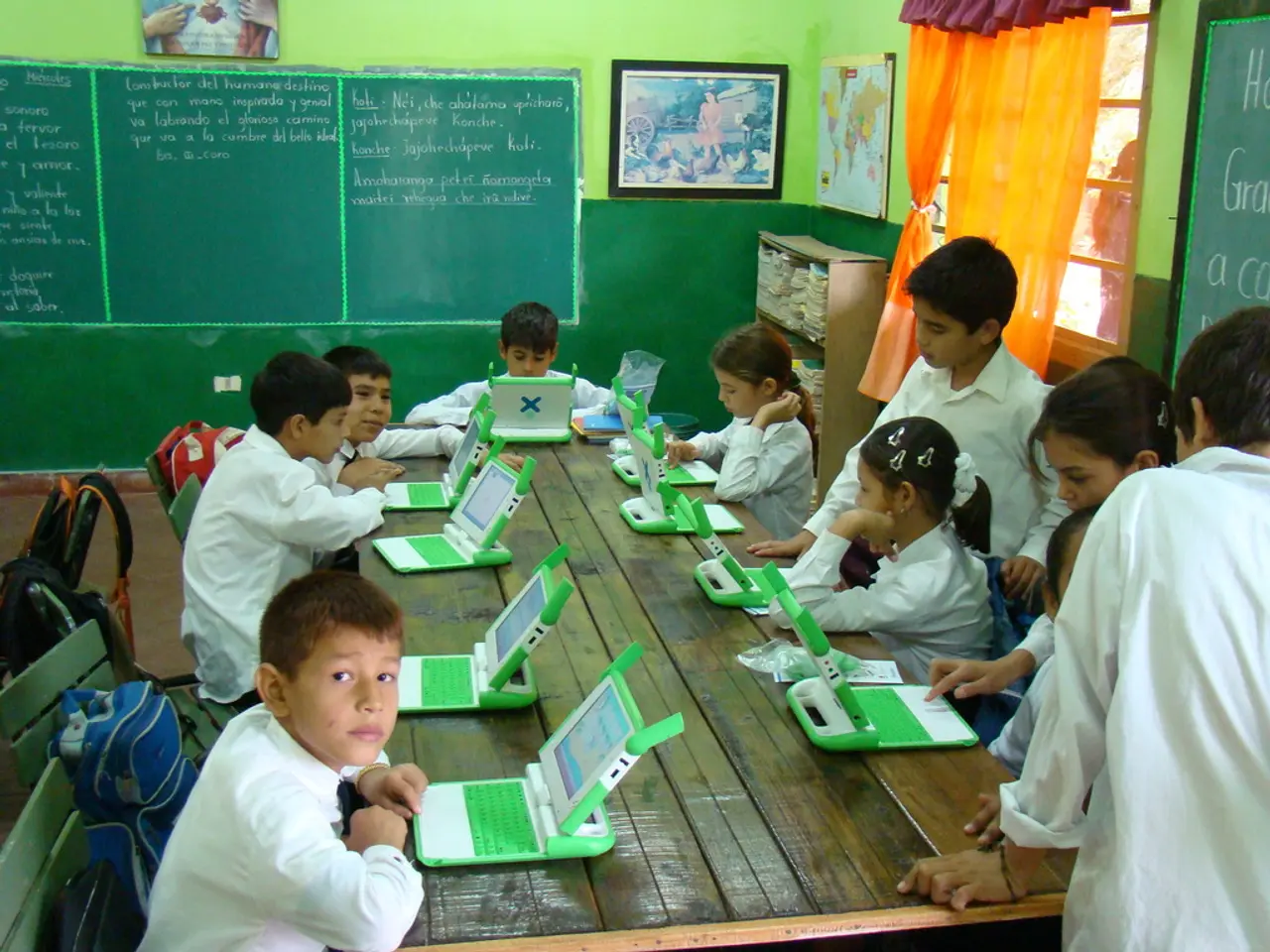Digital Learning Enhancement in Johannesburg as South African Ministers Deliver Tablets
In a bid to give every young mind a head start in the digital economy, the South African government has launched an ambitious digital education initiative. This project, aimed at learners, was officially unveiled at Glenvista Primary School in Johannesburg.
The initiative, described as a bridge to opportunity, is more than just a donation of devices. It's a collaborative effort to advance digital inclusion, aimed at equipping learners with essential skills for the modern world. These skills include digital literacy, coding, robotics, and problem-solving.
Minister of Communications and Digital Technologies, Solly Malatsi, and Minister of Basic Education, Siviwe Gwarube, were present to officially hand over smart learning tablets to learners. Malatsi emphasized the Department's commitment to ensuring no child, school, or community is left behind in the digital age.
This initiative is part of a broader government strategy to leverage strategic partnerships with the private sector. The visit to Glenvista Primary School is a testament to this approach, with 4Sight Holdings playing a significant role in the project. The company has renovated classrooms, provided computers and reliable internet, and offered basic IT training to prepare learners for a digital job market.
The government's goal is to create a connected, empowered generation. This initiative is a step towards achieving that goal, one device, one learner, one future at a time. The handover marks the beginning of a journey that aims to bridge the digital divide and foster digital inclusion.
On a continental scale, South Africa aligns with AUDA-NEPAD’s African EdTech 2030 Vision and Plan, which promotes inclusive digital learning through collaborative actions among governments, private sector, NGOs, and communities. This vision emphasizes accessible, affordable, localized digital education supported by integrated infrastructure and teacher upskilling to embed digital pedagogy. The private sector is tasked with developing suitable infrastructure, devices, and platforms, enabling learners to gain skills in digital literacy, coding, and problem-solving aligned with national curricula.
South African universities are also actively engaging in public-private partnerships to respond to the demands of the Fourth Industrial Revolution (4IR), embedding advanced digital skills and practical training through collaboration with industry partners. This reinforces the national emphasis on such partnerships in education and skills development.
[1] Source [2] Source [3] Source [4] Source
This digital education initiative, aligning with AUDA-NEPAD’s African EdTech 2030 Vision, aims to bridge the digital divide and foster digital inclusion, providing learners with essential skills for the modern world, such as digital literacy, coding, robotics, and problem-solving. This collaborative effort between the government and the private sector, like 4Sight Holdings, isn't just about supplying devices, but also about equipping students for a digital job market through strategic partnerships, teacher upskilling, and infrastructure development.




